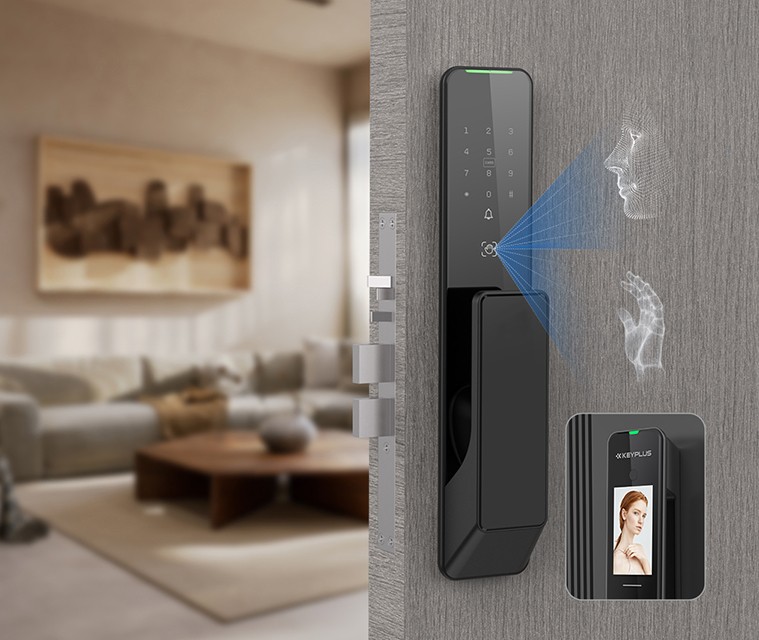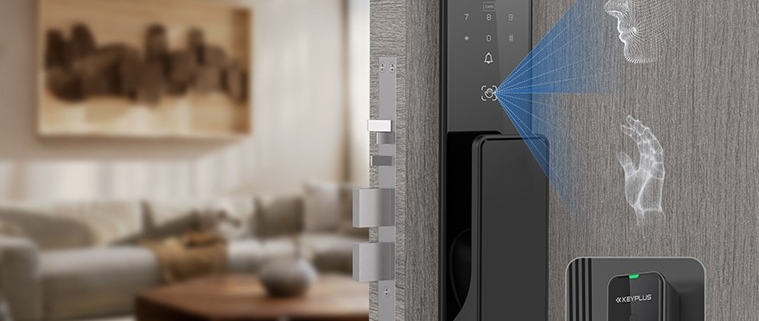Is a Smart Door Lock Waterproof?
Smart door locks have become increasingly popular due to their convenience, security, and advanced features. However, one important question many homeowners and buyers ask is: Are smart door locks waterproof?
Since smart locks are often installed on exterior doors, they are exposed to rain, snow, humidity, and other weather conditions. Understanding whether a smart lock can withstand water exposure is crucial for ensuring its longevity and reliability.
In this article, we’ll explore:
-
What waterproof ratings mean for smart locks
-
Which smart locks are water-resistant or waterproof
-
How to protect your smart lock from water damage
-
Key factors to consider before buying a weatherproof smart lock
1. Understanding Waterproof Ratings for Smart Locks
Not all smart locks are designed to handle water exposure. Manufacturers use Ingress Protection (IP) ratings to indicate how well a device resists dust and moisture.
What Is an IP Rating?
The IP (Ingress Protection) code consists of two numbers:
-
First digit (0-6): Dust resistance (6 being the highest)
-
Second digit (0-9): Water resistance (9 being the highest)
For smart locks, the most common water resistance ratings are:
-
IP44: Resists splashing water (light rain) but not heavy downpours.
-
IP55: Protected against low-pressure water jets (heavy rain).
-
IP65: Dust-tight and resistant to water jets (suitable for harsh weather).
-
IP66: Can withstand powerful water jets (heavy storms).
Most smart locks are water-resistant (IP44-IP55) but not fully waterproof. Only specialized outdoor-rated locks have higher waterproofing (IP65+).
2. Are Smart Door Locks Waterproof?
The short answer: Most smart locks are water-resistant but not fully waterproof.
-
Battery compartments and electronic components can be damaged by prolonged water exposure.
-
Mechanical parts (like bolts) are usually more durable, but electronics may fail if water seeps in.
3. How to Protect Your Smart Lock from Water Damage
Even if your smart lock has a good IP rating, taking extra precautions can extend its lifespan:
A. Install a Door Overhang or Porch
-
A roof or awning above your door reduces direct rain exposure.
-
This is especially helpful for locks with lower IP ratings.
B. Use a Weatherproof Cover
-
Some brands sell silicone or plastic covers to shield the keypad and electronics.
C. Avoid Direct Hose Spray or Pressure Washing
-
Even high IP-rated locks can fail if blasted with high-pressure water.
-
Clean the lock with a damp cloth instead.
D. Check Battery Compartment Seals
-
Over time, rubber gaskets can wear out, allowing moisture inside.
-
Replace damaged seals to maintain water resistance.

4. What Happens If Water Gets Inside a Smart Lock?
If your smart lock is exposed to excessive water, you may encounter:
-
Keypad malfunction (unresponsive buttons or false touches).
-
Battery corrosion (leaking batteries due to moisture).
-
Electronic failure (lock stops working entirely).
How to Fix a Water-Damaged Smart Lock
-
Remove batteries immediately to prevent short-circuiting.
-
Dry the lock with a microfiber cloth and let it air-dry for 24 hours.
-
Use silica gel packets to absorb internal moisture.
-
Test the lock before reinstalling. If it fails, contact the manufacturer.
5. Should You Buy a Waterproof Smart Lock?
If you live in a region with:
Heavy rainfall
High humidity
Frequent snow or ice
Then yes, invest in a high IP-rated smart lock (IP65 or higher).
However, if your door is under a covered porch, a standard IP44-IP55 lock should suffice.
Final Verdict: Smart Locks Are Water-Resistant, Not Fully Waterproof
While most smart locks can handle light rain, they are not designed to survive submersion or heavy storms unless they have a high IP rating (IP65+).
Before buying, check:
IP rating (choose at least IP55 for outdoor use)
Battery compartment sealing
Warranty coverage for water damage
By selecting the right lock and taking protective measures, you can ensure your smart lock remains functional and secure—no matter the weather!
Have Questions?
If you’re unsure which smart lock is best for your climate, consult a locksmith or check manufacturer guidelines. A well-protected smart lock will serve you for years without weather-related issues.
Would you like recommendations for smart locks in your specific region? Let us know in the comments!









